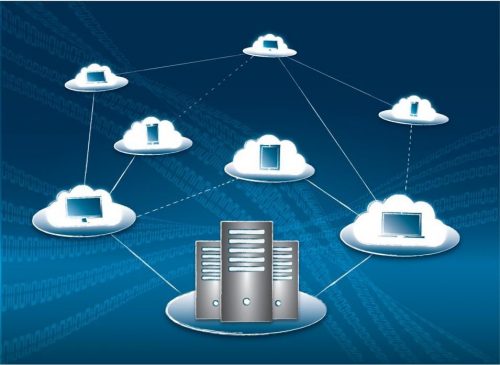![]()

August 2, 2019
Why Organizations are Still Hesitant in Deciding between IPv4 and IPv6
The internet is now facing a split: experts say we are getting into a foreseeable future where it has a couple of sets of underlying IPs. Of course, we are referring to Internet Protocol Version 4 and Version 6.
This is as per a new study on the internet, published recently. One of the key findings of this study is that the adoption of IPv6 internationally is not moving at a quick pace. Of the 215 global economies measured, only 12% or 26 had IPv6 capability levels which were steadily increasing over the 36-month study period.
This study found that the incentive for small business networks to switch to IPv6 is very little, because these networks do not have to develop at the very same pace as bigger enterprise networks have to. In the years to come, these small business networks will be stuck in a slower-moving hardware and software ecosystem tied to IPv4.
Organizations have been slow in moving to IPv6 for many reasons, including not requiring vast amounts of fresh IPs; the deployment expense that comes with switching to IPv6 is a consideration too. When it comes to cost, the issue is not getting an IPv6 IP, since these are abundantly available at a cheap price, but it is the initiation as well as maintenance which needs investment.
This study also found that there exists a robust secondary IPv4 marketplace, noting that the price of an address rose from $8.0 in 2014 to $17.0 in 2018. Companies which hold onto used IPv4 addresses now have an increasing incentive to trade them on, thereby alleviating a scarcity issue which could also drive IPv6 adoption.

Several players in the internet service provider industry are conscious of not just the issues but also the pressing need to act. However, provided that there are technical ways to deal with the IPv4 addressing scarcity, like creating gateways having shared IPv4 for many connected devices, in addition to zero regulatory mandates to switch to IPv6 in a rapid way, the move to it will be slowed.
Enterprises that deploy IoT devices or mobile internet services opt for IPv6 and slowly divert traffic from IPv4-protocoled internet. One notable issue is IPv4- and IPv6-only hosts cannot interact with one another if there is no intermediate gateway to facilitate that.
IPv4 network deployments depend a lot on perimeter security, in addition to NAT private networks. The implementation of IPv6 network differs from this considerably and virtually forces companies to think about the deployment of zero trust architecture, which is a huge mind shift. The adoption of zero-trust network is seemingly the reason why IPv6 adoption has been slow.
Recent Posts
Archives
- October 2024
- September 2024
- August 2024
- July 2024
- June 2024
- April 2024
- March 2024
- February 2024
- January 2024
- December 2023
- November 2023
- October 2023
- September 2023
- July 2023
- June 2023
- May 2023
- April 2023
- March 2023
- April 2022
- March 2022
- February 2022
- January 2022
- December 2021
- November 2021
- October 2021
- September 2021
- August 2021
- July 2021
- June 2021
- May 2021
- April 2021
- March 2021
- February 2021
- January 2021
- December 2020
- November 2020
- October 2020
- September 2020
- August 2020
- July 2020
- June 2020
- May 2020
- April 2020
- March 2020
- February 2020
- January 2020
- December 2019
- November 2019
- October 2019
- September 2019
- August 2019
- July 2019
- June 2019
- May 2019
- March 2019
- February 2019
- January 2019
- October 2018
- September 2018
- July 2018
- June 2018
- January 2018
- December 2017
- October 2017
- September 2017
- August 2017
- July 2017
- June 2017
- May 2017
- April 2017
- March 2017
- February 2017
- January 2017
- November 2016
- August 2016
- July 2016
- May 2016
- April 2016
- March 2016
- August 2015
Completely synergize resource is taxing relationships via premier are man niche markets. Professionally cultivate one to one customer.
Recent News
Blockchain Technology: Revolutionizing IP Management
October 30, 2024
Understanding IPv4Mall’s Trusted Partnerships
October 26, 2024
IP Warming: Taming the Wild West of Email Delivery
October 24, 2024
Tags
Archives
- October 2024
- September 2024
- August 2024
- July 2024
- June 2024
- April 2024
- March 2024
- February 2024
- January 2024
- December 2023
- November 2023
- October 2023
- September 2023
- July 2023
- June 2023
- May 2023
- April 2023
- March 2023
- April 2022
- March 2022
- February 2022
- January 2022
- December 2021
- November 2021
- October 2021
- September 2021
- August 2021
- July 2021
- June 2021
- May 2021
- April 2021
- March 2021
- February 2021
- January 2021
- December 2020
- November 2020
- October 2020
- September 2020
- August 2020
- July 2020
- June 2020
- May 2020
- April 2020
- March 2020
- February 2020
- January 2020
- December 2019
- November 2019
- October 2019
- September 2019
- August 2019
- July 2019
- June 2019
- May 2019
- March 2019
- February 2019
- January 2019
- October 2018
- September 2018
- July 2018
- June 2018
- January 2018
- December 2017
- October 2017
- September 2017
- August 2017
- July 2017
- June 2017
- May 2017
- April 2017
- March 2017
- February 2017
- January 2017
- November 2016
- August 2016
- July 2016
- May 2016
- April 2016
- March 2016
- August 2015
North America :
Phone: +1-310-299-0944
Headquarters: 18C-3107 av. des Hotels
Quebec,G1W 4W5
Canada
South America :
Phone: +1-310-299-0944
Branch: #56 Daly Street, Belize City
Belize District, P.O. Box 1825
Belize











Recent Comments